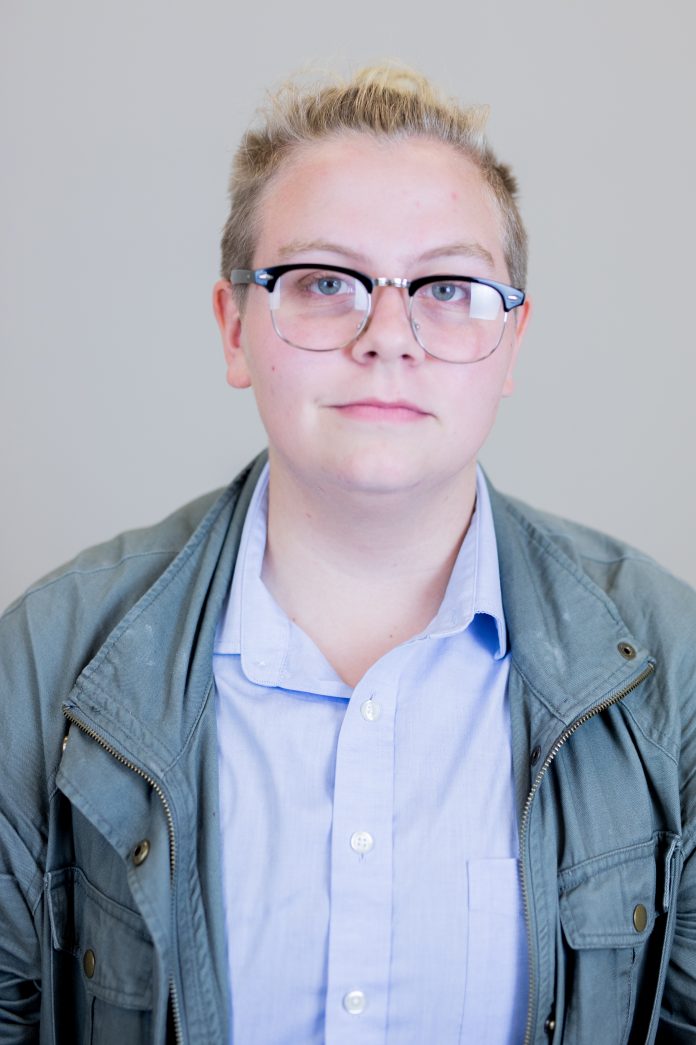
In the 90s sitcom “Will and Grace,” there’s an old joke that a man can be considered ‘skinny’ among heterosexual people but labeled fat among their gay peers. No matter how funny Sean Hayes’ delivery of this joke was, it still highlights a glaring problem in the queer community. Obviously, I cannot speak with accuracy about the habits of an entire community, regardless of whether or not I exist within said community, but this generalization seems to be true more often than not. Queer men often face enormous pressure to fit into a very narrow definition of beauty, and hookup apps like Grindr and Scruff perpetuate this notion.
Obviously, it can be argued that these apps provide a safe space for some queer men, but in no way is it a safe space for all queer men. In my time, I’ve seen numerous profiles stating: “No blacks, fats, femmes, or asians!!,” “HWP, please,” (that means height and weight proportionate, i.e., no fat people), “Absolutely no fatties,” and, the notorious, “I’m masc, you should be too.” Strangely enough, being seen as ‘straight acting’ is something that is desired by some gay men, but I’m pretty sure the biggest defining trait of being ‘straight acting’ would be having heterosexual sex, but I feel like they may have missed the memo.
But I digress. It’s survival of the fittest (emphasis on fittest) in order to somehow conform to the mold set by cisgender heterosexual people in order to be seen as a ‘socially acceptable queer’. If you don’t fit this mold, then you’re just out of luck.
The myth of beauty on queer hookup apps has proven just how harmful it can be: queer men spend more money than any other population on getting fit, and they also have the highest rate of eating disorders. Statistics from the National Eating Disorders Association (NEDA) show that while gay men make up approximately 5 percent of the male population, they represent 42 percent of men with a history of disordered eating habits.
What is the root of this, you may ask? Why is a specific population of cis gay men enforcing these strict rules requiring one to be fit, masculine, and white? My theory is a simple one: these men want to overcompensate for their queerness in the eyes of cisgender people, because they have been led to believe that being queer is inherently negative and that they need to somehow prove that they aren’t a “sissy”. They fight it, and do all that they can to “reclaim” their lost masculinity.
I’m tired of it, my other queer friends are tired of it, and it’s just exhausting. These politics of exclusion leave many feeling left out of the community that is supposed to embrace them after coming out, and that they have no one to turn to. This is especially true for transgender and non-binary people on the app, as well as queer people of color. I cannot tell you how many times I have been approached by insensitive, cis gay men who apparently have no idea how to use Google when they ask me whether or not I have a penis. Seriously? You have the entire internet at your fingertips, yet you want to interrogate me (one person) on the attitudes and experiences of all trans people to ever exist?
So what can be done? Well, Grindr has taken to leading the ‘Kindr’ initiative, a program that highlights the sheer amount of discrimination, transphobia, racism and sexism present on the app in an effort to educate its users. While this is definitely a step in the right direction, it is nowhere near enough to eradicate those issues, and the community as a whole needs to step up in order to combat these types of discrimination. We desperately need to champion our on sort of body positivity movement, one that extends the ideals of beauty beyond fit, cisgender, masculine white men. Sure, you can have a nice body as well as an enlightened view of masculinity, but fitting into these rigid standards of beauty should not be a prerequisite for happiness.
